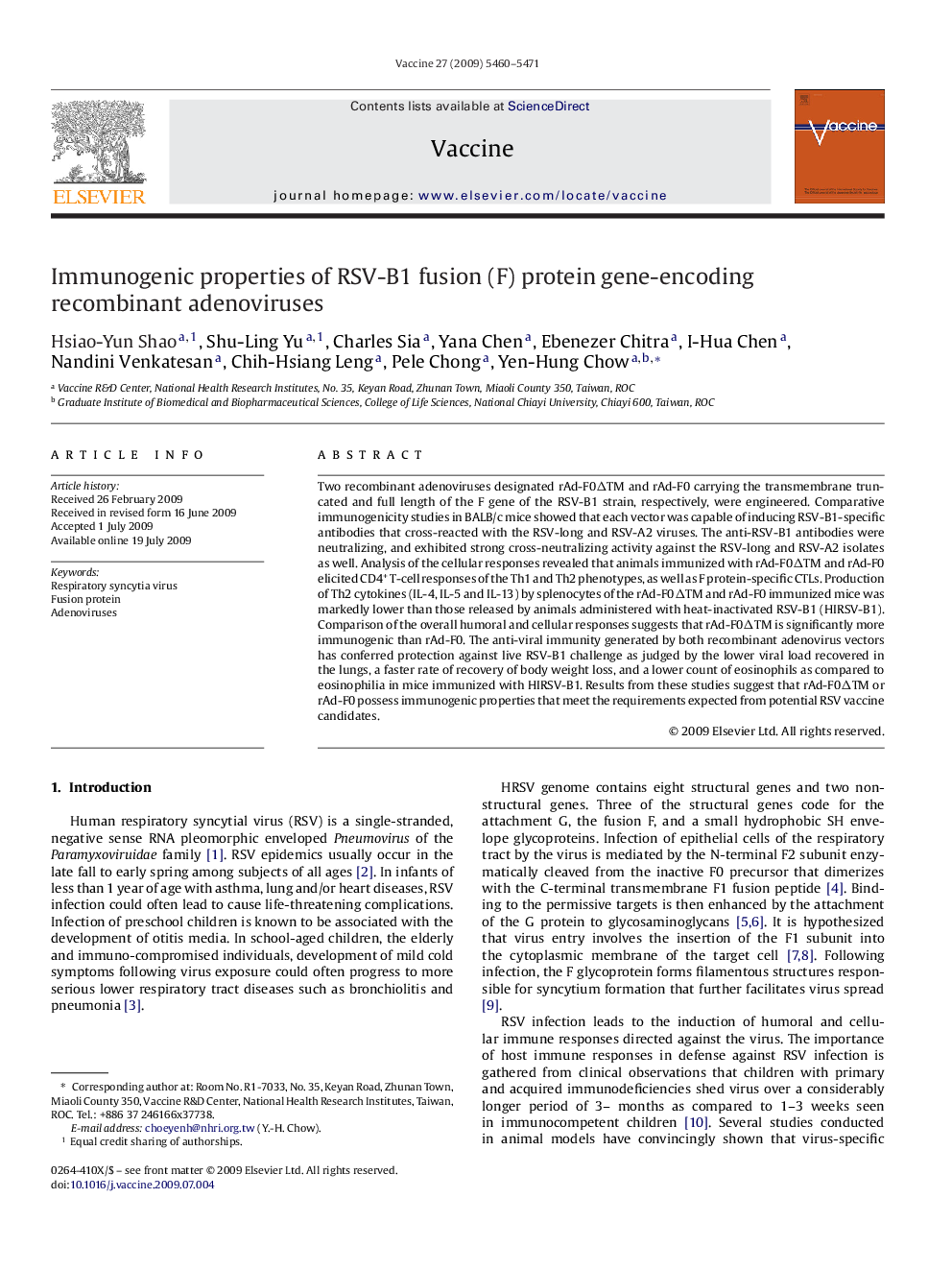| Article ID | Journal | Published Year | Pages | File Type |
|---|---|---|---|---|
| 2405469 | Vaccine | 2009 | 12 Pages |
Two recombinant adenoviruses designated rAd-F0ΔTM and rAd-F0 carrying the transmembrane truncated and full length of the F gene of the RSV-B1 strain, respectively, were engineered. Comparative immunogenicity studies in BALB/c mice showed that each vector was capable of inducing RSV-B1-specific antibodies that cross-reacted with the RSV-long and RSV-A2 viruses. The anti-RSV-B1 antibodies were neutralizing, and exhibited strong cross-neutralizing activity against the RSV-long and RSV-A2 isolates as well. Analysis of the cellular responses revealed that animals immunized with rAd-F0ΔTM and rAd-F0 elicited CD4+ T-cell responses of the Th1 and Th2 phenotypes, as well as F protein-specific CTLs. Production of Th2 cytokines (IL-4, IL-5 and IL-13) by splenocytes of the rAd-F0ΔTM and rAd-F0 immunized mice was markedly lower than those released by animals administered with heat-inactivated RSV-B1 (HIRSV-B1). Comparison of the overall humoral and cellular responses suggests that rAd-F0ΔTM is significantly more immunogenic than rAd-F0. The anti-viral immunity generated by both recombinant adenovirus vectors has conferred protection against live RSV-B1 challenge as judged by the lower viral load recovered in the lungs, a faster rate of recovery of body weight loss, and a lower count of eosinophils as compared to eosinophilia in mice immunized with HIRSV-B1. Results from these studies suggest that rAd-F0ΔTM or rAd-F0 possess immunogenic properties that meet the requirements expected from potential RSV vaccine candidates.
